Indie Monthly: April 2024
Indies for everyone

April has turned out to be a busy month. While every video game and entertainment writer turned into a fair-weather Fallout fan, I was digging through the soil of the indie market in search of gold - and I found it.
The highest-profile game of April is unquestionably Eiyuden Chronicle, the long-awaited retro RPG that's currently making a splash on every platform in existence. Don't think that it ends there, though, because there were also plenty of innovative titles to satisfy any taste. Whether you're looking for a jumpless platformer, a super-powered stealth game, or the open-world space adventure that every '90s PC fan has been asking for, you'll find it here.
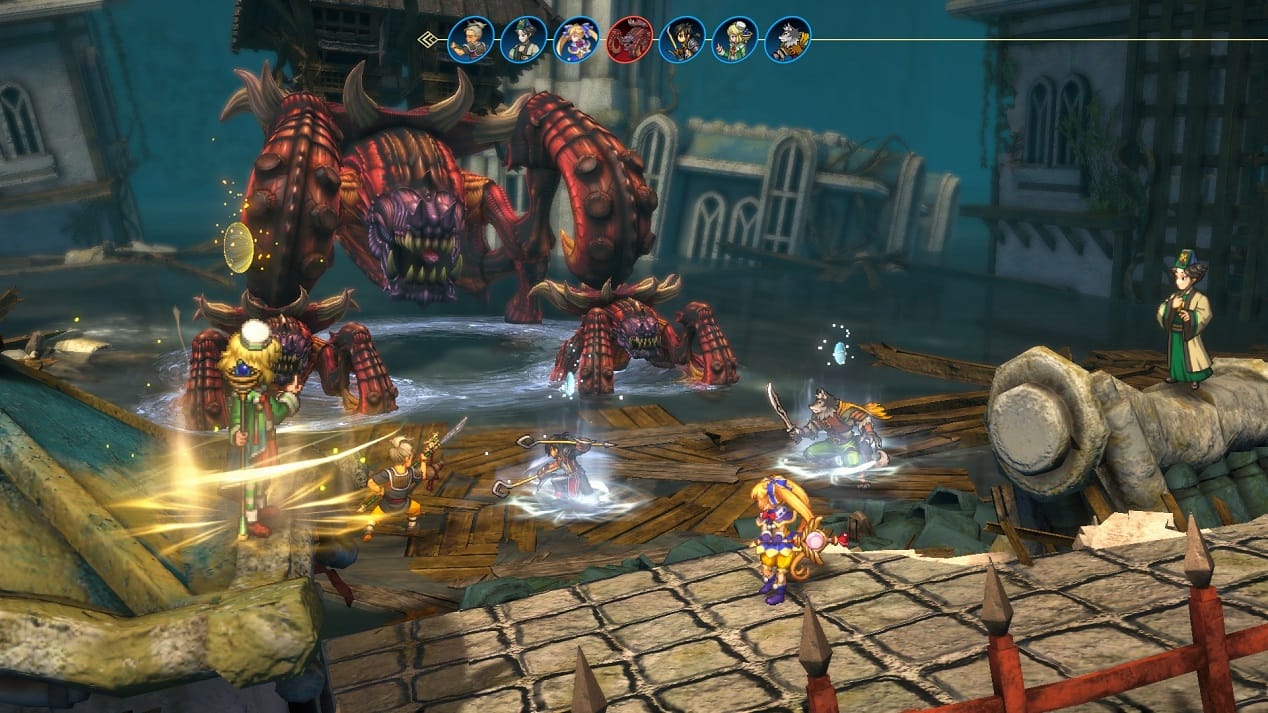
Eiyuden Chronicle: Hundred Heroes
The realm of Allraan exists in an uncertain peace, divided between great powers. Part of the land is controlled by Galdea, a technologically advanced empire, while the rest is divided between a collection of allied kingdoms known as the League. Nowa, a boy from an isolated village, is assigned to a joint expedition with the Galdeans. He meets Seign, a young imperial officer, who is friendly but also warns him that one day they will have to cross swords. Sadly for both of them, this prediction will come to pass sooner rather than later as the discovery of a new artifact and a sinister plot draws Allraan ever closer to war.
Eiyuden Chronicle is massive - that's the one word you will hear used to describe the game because it is apparent from the very start. The game is meant to resemble one of the ultra-ambitious JRPGs from the PlayStation era, and to that end any feature you might have found in a late 90s RPG is mixed in here somewhere. It mixes in town building, distinct mechanics for tactical field combat and duels, commodities trading, a half-dozen minigames ranging from races and fishing to Beyblade-esque top battling, and the opportunity to recruit a massive, colorful cast of characters for both combat and non-combat roles.
But let's not fixate on the side content so much that we miss the essentials. This is a JRPG at its heart, featuring turn-based combat with up to six active and one supporting party member at a time. There are dozens of available fighters, all of whom have distinct special abilities and even different blocks. Characters have access to conventional magic, specials fed from a regenerating meter, and a small selection of combo abilities. Some of these skills are unique to certain characters while others can be assigned through runes, the game's customization system. And for those who prefer auto battlers, Eiyuden Chronicle also features a robust auto-combat setup that is fully customizable for each individual character.
I could easily go on for a few thousand more words, delving into detail on this mechanic or that aspect, but it's really not that complicated. If you agree with me that the PlayStation had some of the best RPGs ever made, then Eiyuden Chronicle is absolutely the game you've been waiting for.
Eiyuden Chronicle: Hundred Heroes is available for PC via Steam, GOG and Epic, PlayStation, Xbox, Nintendo Switch, and via the Xbox Game Pass. A copy was provided for this review.
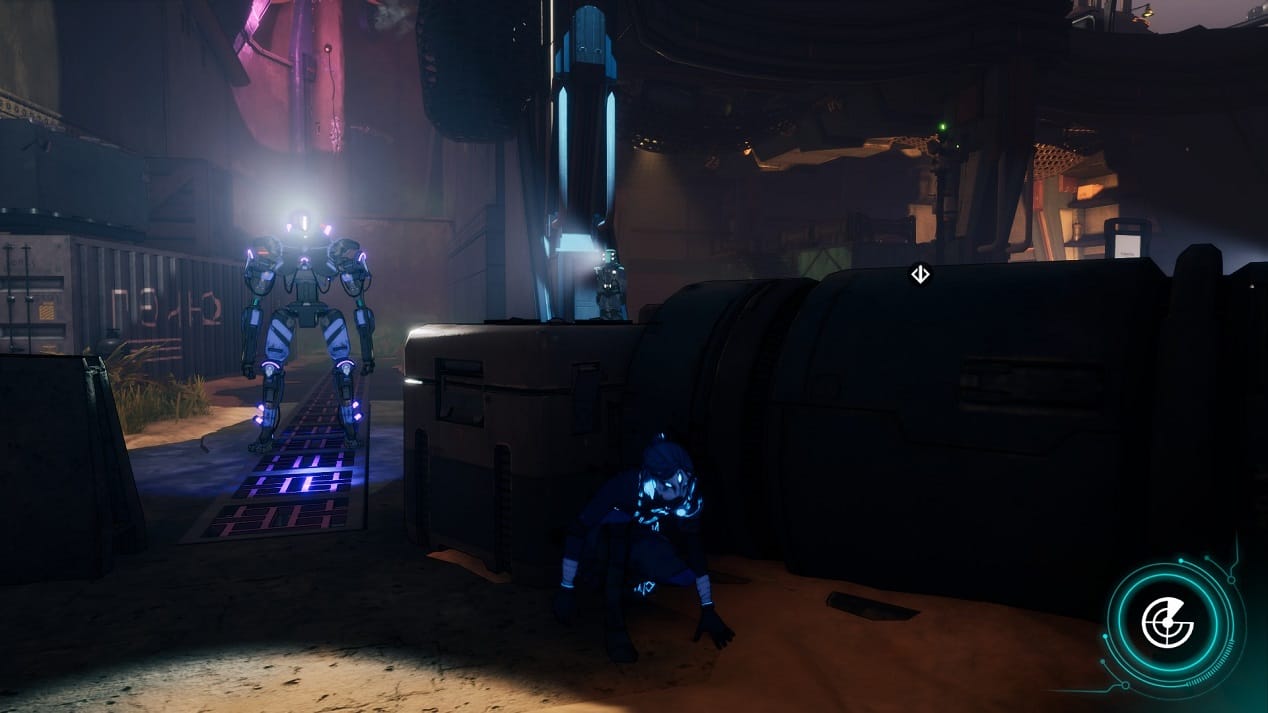
Ereban: Shadow Legacy
Ayana is, as far as she knows, the last of the Ereban - an enigmatic people capable of manipulating shadows. She is invited to become an agent of Helios, an organization that provides free energy to the planet via a Dyson ring around the local star. But after narrowly escaping an abduction attempt at their headquarters, Ayana finds herself in a struggle between Helios and a resistance group known as the Forgotten Suns. She will have to walk a tightrope between these two less-than-trustworthy groups as she seeks to learn the fate of the Ereban.
Ereban: Shadow Legacy is a stealth game with the occasional bit of Prince of Persia-esque platforming. Ayana's main enemies are Helios patrol robots known as Syms. Syms are a serious threat - while Ayana can take out a Sym in one move if she can sneak up on it, the Syms can also immediately capture Ayana if she gets within arm's reach. Ayana can level the playing field with her signature shadow merge ability, which allows her to become invisible and travel up vertical surfaces.
There's more exploration in Ereban than you might expect. While most of the game takes place in the linear levels that are typical for stealth games, some areas are more open, with sidequests and plenty of secrets. Finding hidden items and helping friendly NPCs grants Ayana resources that can be used to build gadgets or enhance her shadow powers.
Ereban is simply an exceptional game. Ayana's powers are fun to use without breaking the game, and the stealth scenarios are challenging without being unfair. There's also a remarkable amount of visual detail that can have an impact on the mechanics - turbine blades and flying objects cast shadows which Ayana can use to escape from an otherwise well-lit area. If you have any affinity for stealth, you owe it to yourself to check this one out.
Ereban: Shadow Legacy is available for PC via Steam. A copy was provided for this review.
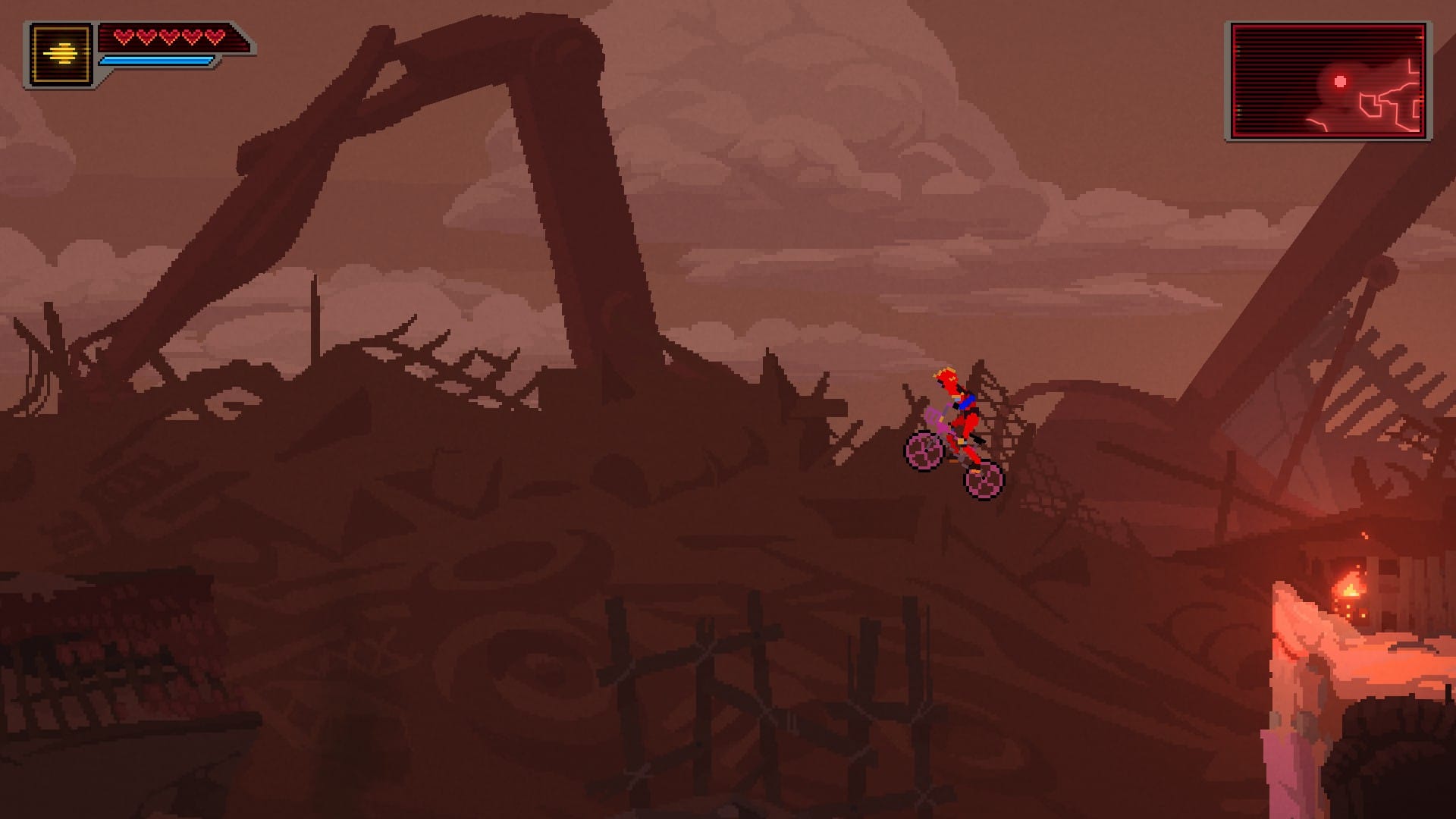
Turbo Kid
Continuing on from the story of the 2015 film of the same name, Turbo Kid follows the ongoing exploits of the titular comic-obsessed youth as he rides his BMX bike through a post-apocalyptic wasteland. Bailing out in the Middle-Wastes, he is rescued by a young researcher who works in a small, self-sustaining settlement. The locals are friendly and happy to help the Kid find what he needs to move on, but between the wasteland gangs and their apparent connection to the machine-worshipping religion that dominates the settlement, there's clearly more going on.
Turbo Kid is a Metroidvania, albeit one that is a bit more focused and combat-centered than they tend to be. The Kid is armed with a blaster that he can charge and modify, Mega Man-style, with additional shot types. His signature equipment, however, is his bicycle. Starting about an hour in, the player will be able to summon the bike at any time. While useful in exploring the game's truly massive maps, the bike is also used for racing and trick attack minigames and is central to Turbo Kid's movement-tech-focused boss fights.
The Middle-Wastes are remarkably detailed and even quite beautiful. As the Kid explores the surrounding area, he'll encounter everything from drug-addled punks to scavengers who don't stop digging even when there's combat around them, all with smooth animations and high-detail spritework. This extends to combat as well, and it's here I really should mention how gory this game gets as the violence is also very well-detailed. This is a game where the player can throw a severed head as a weapon and where a close-range kill can send the opponent's organs flying. The Middle-Wastes aren't for those with weak stomachs.
Overall, Turbo Kid is a fine Metroidvania with enough novel elements to catch anyone's eye, well worth considering if you have any fondness for platformers.
Turbo Kid is available for PC via Steam. A copy was provided for this review.
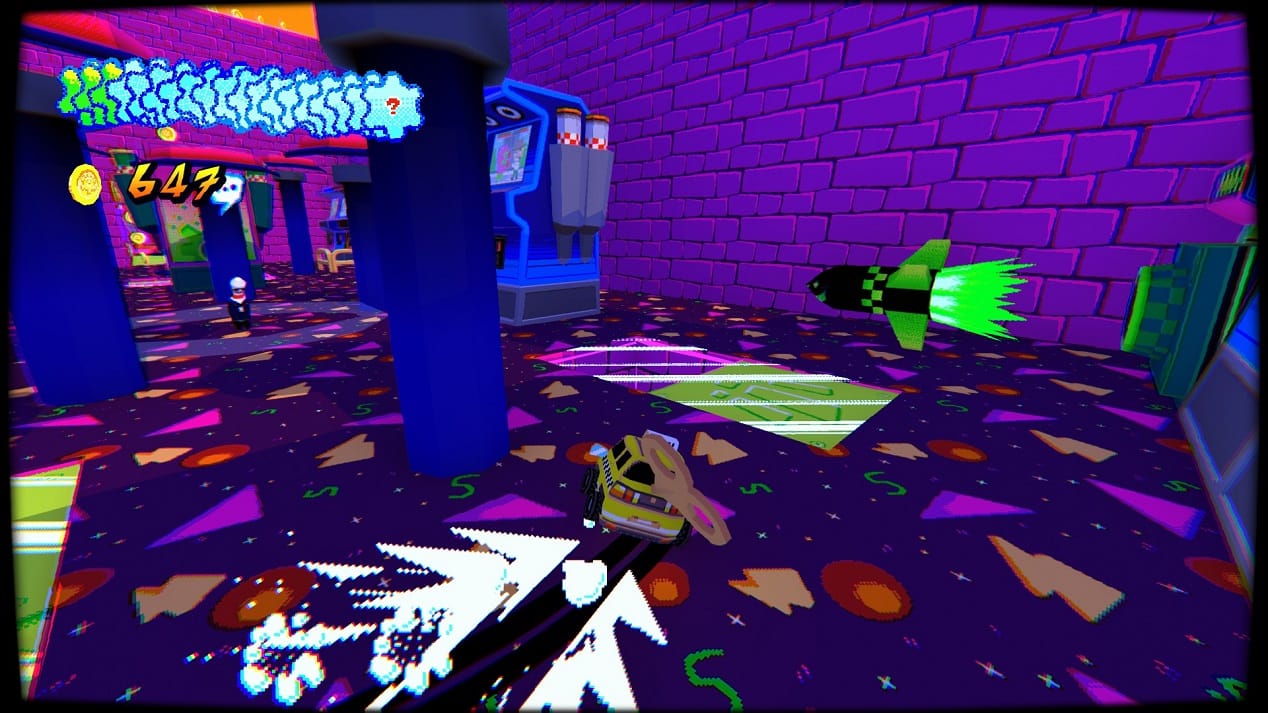
Yellow Taxi Goes Vroom
The world is grinding to a halt as a mysterious green substance contaminates the oil supply, warping innocent vehicles and machines into aggressive monsters. In an attempt to restore the world to its old state, the engineer Morio unleashes his latest creation: A wind-up taxi that can run forever without needing oil. As this taxi, your goal is to collect oil-covered gears as you make your way toward the company responsible for the strange contaminant.
Yellow Taxi Goes Vroom may look like a driving game - something akin to Crazy Taxi, perhaps - but it's more of a hybrid between a driving game and a 3D collect-a-thon platformer. The taxi can't jump, so the "platforming" part of this platformer requires finding some other means of getting air. Springs, ramps, and explosions are all options, and a clever player can find other ways to break the physics.
Levels are broadly divided into two categories. On the one hand, you have typical fifth-gen styled platformer levels with a fair amount of verticality. On the other hand, you have flatter, more horizontal levels that demand some actual taxi-driving skills. The latter levels are timed - the taxi isn't fully wound up, so the player must collect fares who will turn the key and extend the timer in exchange for a short trip. The levels are all designed to accommodate the game's no-jump movement system, though there are always alternate routes and the developers even encourage people to try and break the boundaries.
Aesthetically, Yellow Taxi Goes Vroom is based on the graphics style of the N64, though the design can have a bit of a Sega flavor at times. Humor is also a key part of the experience, with a lot of parody, fourth-wall breaking, and some really crude jokes. There's definitely some Conker in this game's lineage, which might be right up your alley or it might not be to your taste at all.
Yellow Taxi Goes Vroom is available for PC via Steam. A copy was provided for this review.
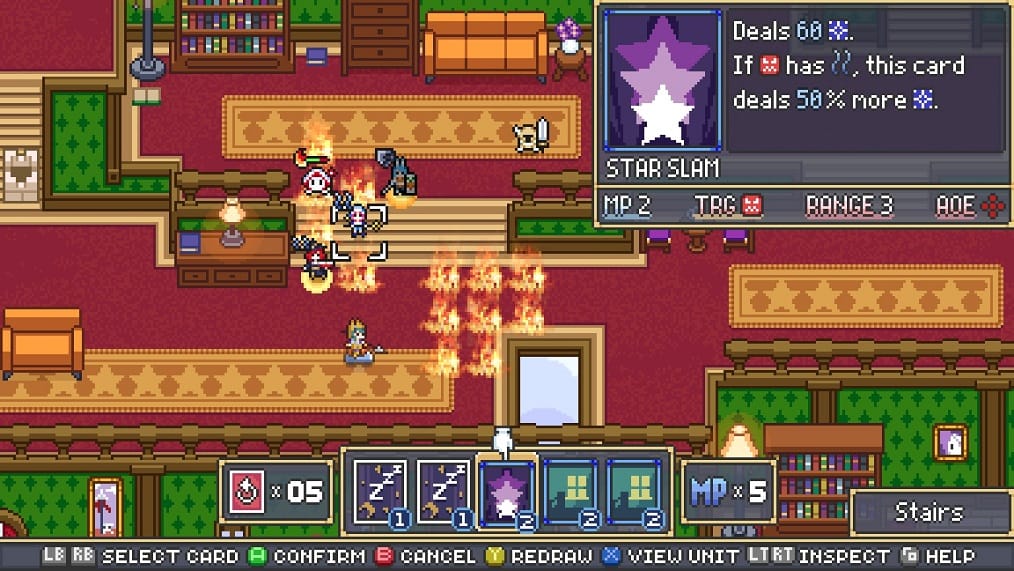
Dream Tactics
The World of Dreams is facing an existential threat. The Dream Eater, an unkillable monster of godlike power, has returned to annihilate the world. Only a human - endowed with powers beyond any normal dream - has the capability to defeat the Dream Eater and temporarily restore order. It's just a shame that Neru, the latest chosen one, is a bit on the lazy side. Unable to master her powers in time, she'll have to seek help across the Dream World in order to accomplish her mission.
Dream Tactics is a TRPG/deck-builder with the occasional puzzle or action sequence. During battles, characters take turns moving and then playing cards to take actions, a system similar to those in games like Card Hunter or Nitro Kid. Players have a limited ability to redraw cards which, along with the small deck size, means that random chance is less of a factor than in some similar games.
The real standout feature of Dream Tactics is its customization. The player finds new cards in chests and while every card belongs to a specific character, most of them can be cross-equipped to add one character's mechanics to another's deck. Similarly, the characters don't have designated gear slots but instead have a certain number of points for offensive and defensive gear, with their equipment otherwise being unrestricted. Between these features, it's possible to create some strange and powerful builds beyond what the game naturally offers.
Aesthetically, Dream Tactics is meant to resemble a GBA game, something which is most notable in the large sprites used in cutscenes. The style works well with the overall whimsical feel of the game. But don't think that the game's cartoony design means it's easy - while Dream Tactics is an easy ride at the start, later areas and especially bosses will really put your TRPG skills to the test.
Dream Tactics is available for PC via Steam and for Nintendo Switch. A copy was provided for this review.
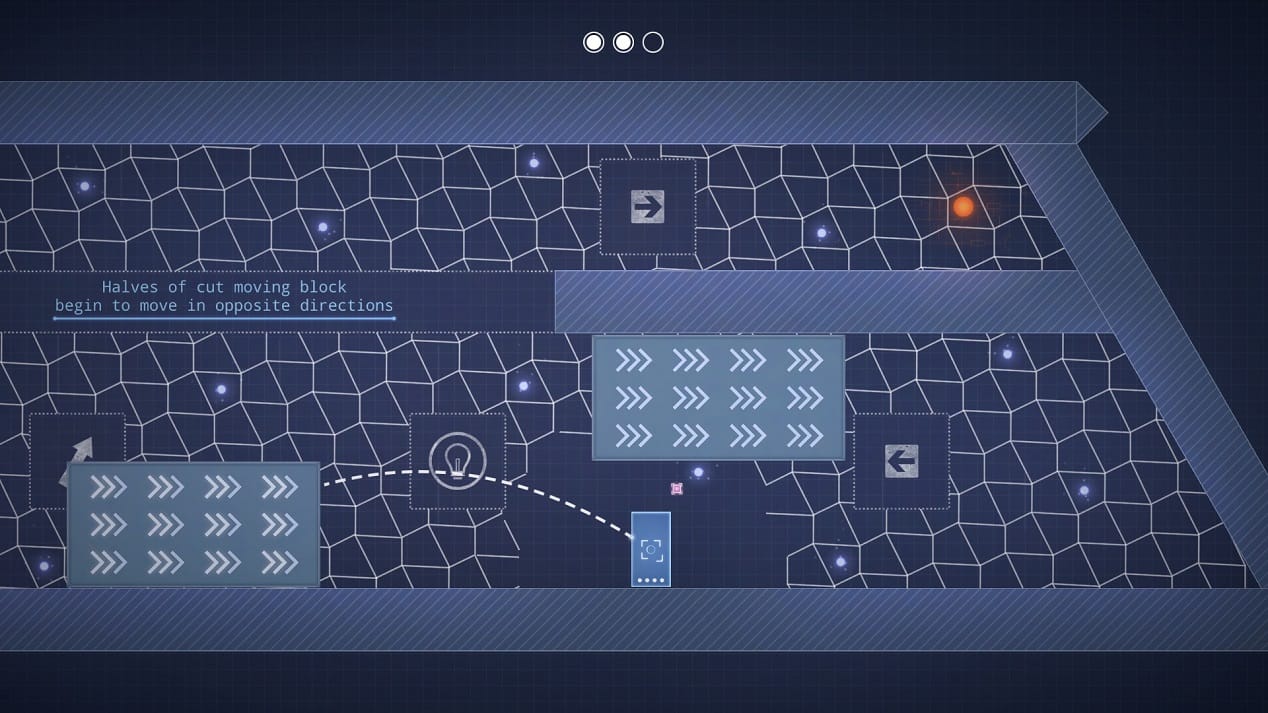
Halver
Set in an abstract, blueprint-inspired world, Halver is a physics-based puzzle platformer with some experimental mechanics. At heart, the game is simple: Get the box-like protagonist to a specific goal point as quickly as possible. This is made more interesting by the addition of blocks with a variety of special traits - moving blocks, teleporters, hazard blocks, "slow time" blocks that behave like water, and more.
In certain levels, the player gains access to an additional mechanic. The protagonist may begin with a certain number of projectiles. Shooting any block bisects it either vertically or horizontally, depending on where the projectile hits. The severed block then reacts based on the physics, often resulting in a cascade of blocks. Most levels provide the player with just enough shots to finish the level, but a few provide a lot of ammo to freely slice the level up.
Halver's standard campaign is not too difficult - a good casual play. For those who want something more interesting, the developer is planning a level builder which is expected to launch with the first major patch. Given the wide range of mechanics on display, this mixes things up nicely and means that no two levels play exactly the same.
Halver is available for PC via Steam. A copy was provided for this review.
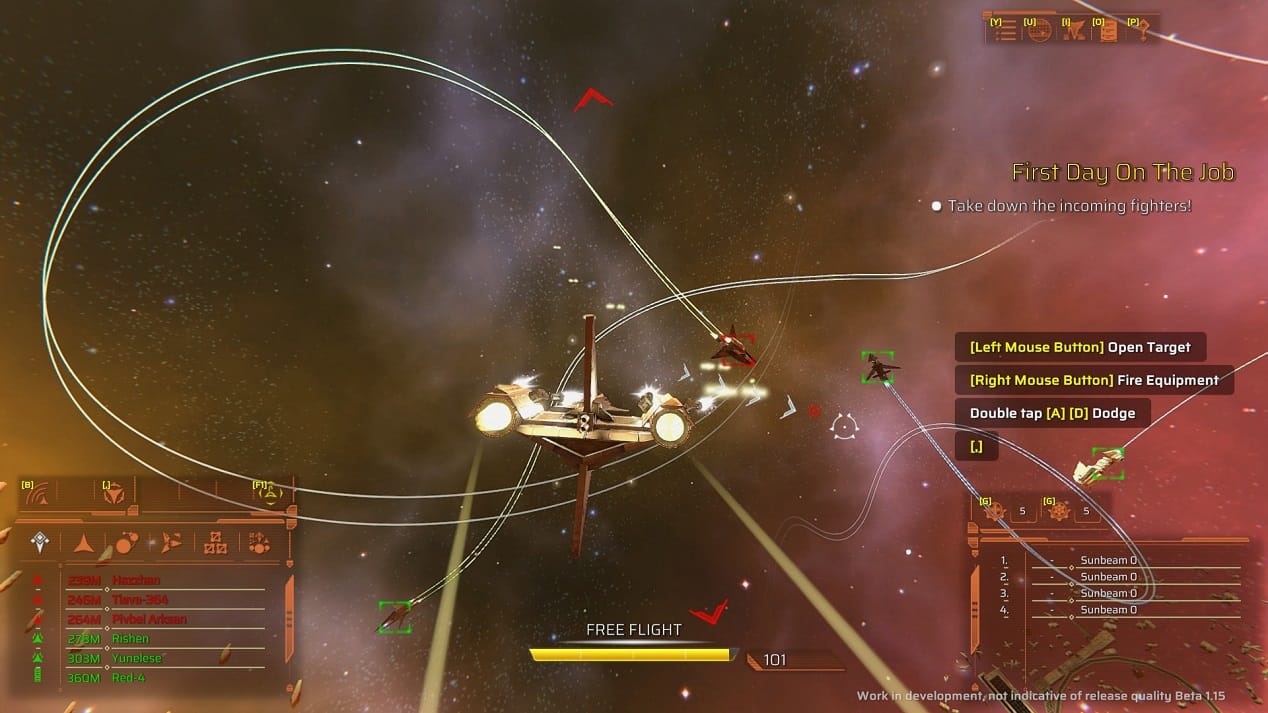
Underspace
The Croft system is a terrifying place. It's a region of the universe known for creating fast fortunes, but only for those willing to brave its hazards, which range from pirates to physics-bending hyperspatial phenomena to monstrous creatures from beyond the stars. It's the perfect place for a disgraced highborn scion to pick up the pieces and reclaim his birth right.
Underspace is a game for the old-school PC enthusiast, specifically fans of Freelancer. The player is put in charge of a spacefaring vessel, moving through free space with hyperspace lane lines to speed things along. After a few tutorial missions, players are left to their own devices, making money by any number of means - trading, piracy, hunting pirates, or exploring for alien treasures. Key to the experience is the setting, which combines the usual distant future sci-fi tropes with cosmic horror to create a surreal, ominous universe.
Underspace is currently in Early Access and while it is technically complete in terms of content and mechanics, it is still pretty rough in many aspects. This can mean graphical oddities, missing VA, or interface oversights. Even so, if you're a fan of classic PC gaming or an aficionado of more modern sandbox titles, you'll probably find something to like here.
Underspace is available for PC via Steam with a free demo available via Itch. A copy was provided for this review.
